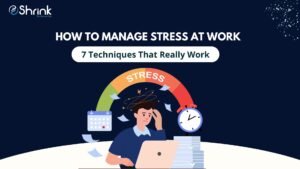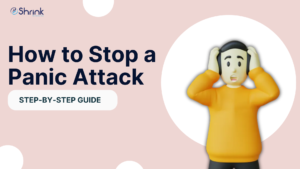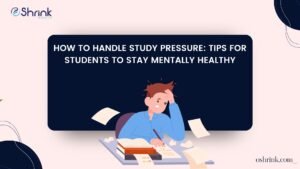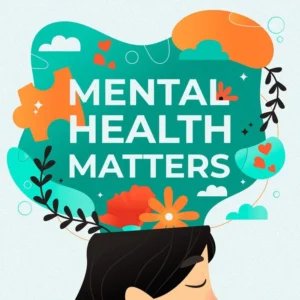Life is a roller coaster ride and one must know how to move on amidst hardship in order for self-development & positive nature. Resilience is our ability to bounce back from life’s challenges and emerge even stronger than before. This guide will examine ways to build mental resilience- and mastering mental resilience, even thrive-in the face of adversity.
Understanding mental Resilience and its Importance
In psychology, resilience is the ability to adapt well in the face of adversity or significant sources of stress. Because resilience means taking the difficult emotions and harnessing them, using inner strengths and resources to cope with life’s challenges to become longer lasting or emerge altered but not destroyed. There are various dimensions of resilience psychology that helps in implementing it in life more effectively. Resilience is the key for mental and emotional well-being as it helps people to cope better with challenges.

Strategies for mastering mental resilience and adaptability
1. Cultivating a Growth Mindset for mastering mental resilience
A growth mindset is the belief that intelligence and abilities can be nurtured through hard work, commitments and purpose, and they are important for building mental resilience. With a growth mindset, people are able to see challenges as possible learning experiences instead of obstacles that will prevent them from succeeding. Struggling and pushing past when things are hard is a key part of mastering mental resilience.
2. Developing Problem-Solving Skills
They promote resilience and help cultivate other elements of perseverance that we need in order to keep navigating the big challenges life sometimes throws at us. As this is called a proactive and solution-focused way, we look for potential solutions to some problems which maybe come up. Then comparison of the advantages and disadvantages need to be done for each one so that you can do strongly legwork at addressing any challenges.

3. Building Strong Support Networks
Moreover, Social support pathways to respond to resilience and recovery are vital in dealing with adversity. Building good relationships with friends, family, and social assets can give affirmation of feelings as well as useful help or a feeling of belonging when people are having hard times. A good support system is one of the key strategies for mastering mental resilience and emotional well-being.
4. Practicing Self-Compassion and Acceptance for improving Mental Resilience
Self-compassion is treating yourself kindly, understanding and accepting the natural world or ourselves in face of failure. Through self-compassion, people can develop resilience by recognizing their own humanness. One need to accept intrinsic imperfection while learning from mistakes in a supportive atmosphere without harsh words or judgment.
5. Maintaining a positive Outlook
The thinking or positive outlook is a key factor that influences both counselor and counselee towards resilience, focusing on the temporary challenge but not as an obstacle to become negative. Looking for the good in a situation, finding hope through silver linings, and keeping optimism. Because this can allow one to get through an adversity with more resilience and helps in building personal resilience.

6. Embracing change and adaptability
The ability to be flexible and adapt when confronted with change or uncertainty is crucial in mastering mental resilience. When we can see that change is the natural order, and develop our capability to be adaptable, any novelty can batten down the hatches with a little life exuberance through each storm.
7. Learning from Setbacks and Failures
Failures and setbacks are inbuilt parts of failure, but also serve a great purpose for mastering mental resilience. When we begin to reframe obstacles as learning experiences, over time we learn that even when things don’t go our way. We sometimes observe lost moments of failure along with years past still provide value in a variety of ways.

Conclusion
Mastering Mental resilience is essential for negotiating the banality of life and all its challenges, with strength, courage and grace. As each of these strategies contributes to the development of resilience and a thriving approach in response to adversity: Growth mindset Perspective-taking problem-solving support networks self-compassion acceptance positive outlook Resilience Embracing Change Adaptability Learning from setbacks. Failure just remember- Resilience is a muscle, it can be exercised and the more you practice and intentionally engage in self-care and seeking help as appropriate the stronger your mental toughness will become.
FAQ related to Mastering Mental Resilience
1. What is resilience, and why is it important?
Answer: Resilience is the capacity to recover quickly from difficulties; toughness. This is very important for psychological well-being and emotional balance because it helps them manage difficult times in an easier, more effective way.
2. How can I build resilience in my daily life?
Answer: Develop a growth mindset and problem solving skills establish strong support networks practice self-compassion and Acceptance maintain a positive outlook embrace change and adaptability learn from setbacks and failures.
3. Can anyone build resilience, or is it something you’re born with?
Answer: Resilience is an ability developed with practice and intentional actions in the skills of resilience. But while some people might be predisposed to certain qualities of resilience, all resilience organizations can develop capacity for it by learning particular skills and attitudes.
4. How can I maintain resilience during times of extreme stress or trauma?
Answer: In times of extreme stress or trauma, self-care, supporting people you trust, fighting for some well-being and taking small steps forward are critical. Resilience is bot avoiding or denying tough emotions, it’s about riding that wave with courage and tenacity.
5. What are some signs that indicate I may need to work on building resilience?
Answer: Signs that indicate this are – feeling overwhelmed by problems, struggling to cope with stress or anxiety, persistently thinking negatively, withdrawing from social events and activities a sense of helplessness and hopelessness in the face of challenges.






